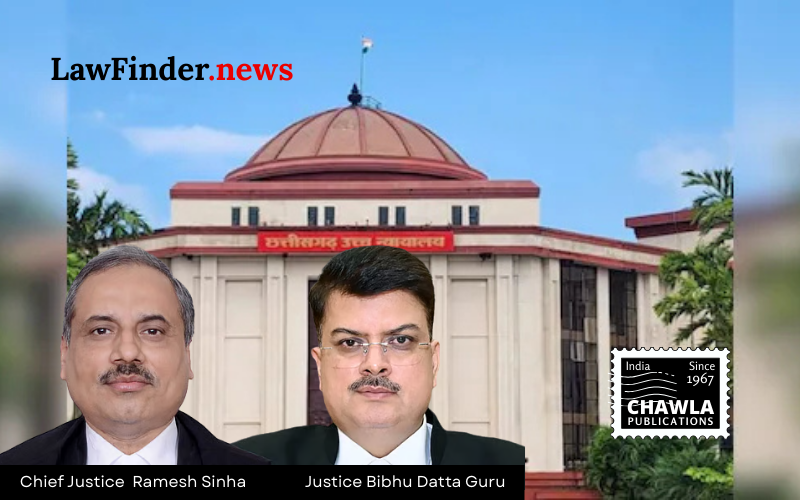Court finds no credible evidence to substantiate claims of extra-judicial killing, denies formation of Special Investigation Team.
In a significant ruling, the Chhattisgarh High Court dismissed a petition filed by Raja Chandra, seeking the constitution of a Special Investigation Team (SIT) to probe the alleged fake encounter and extra-judicial killing of his father, Katha Ramchandra Reddy, by security forces. The petitioner claimed that his father was killed in a staged encounter by police personnel, purportedly after being taken into custody and tortured.
The petition was adjudicated by a bench comprising Chief Justice Ramesh Sinha and Justice Bibhu Datta Guru. The court thoroughly examined the allegations, the return filed by the State, and the sequence of events leading to and following the encounter. The bench highlighted that the petitioner failed to provide credible evidence substantiating the claims of arrest, torture, or execution. The court underscored the necessity for concrete proof beyond assumptions or suspicions to warrant judicial interference or the formation of an SIT.
The respondents, represented by Advocate General Prafull N Bharat, argued that the encounter was a legitimate anti-Naxal operation conducted based on specific intelligence inputs. The State's return detailed adherence to procedural safeguards as mandated by the National Human Rights Commission (NHRC) and Supreme Court guidelines in encounter cases. These included the filing of preliminary and detailed reports with NHRC, conducting postmortem examinations with videography, and initiating a magisterial inquiry.
The court also observed that the petitioner and his mother relied heavily on media reports and conjecture rather than firsthand knowledge of the deceased's activities. Despite claims of injuries suggesting torture, the court emphasized that such injuries could occur naturally during operations in dense forest terrains. Furthermore, the deceased's extensive criminal antecedents in multiple states and active involvement in Maoist activities were factors against the petitioner's assertions.
Citing precedents, the court noted that judicial directions for an SIT or Central Bureau of Investigation (CBI) probe should be reserved for exceptional circumstances where the credibility of the investigation is at stake. The absence of such conditions in this case led to the dismissal of the petition.
Ultimately, the court concluded that the allegations lacked merit, and the petitioner failed to establish any violation of human rights or circumstances warranting further investigation. The court's decision reinforces the principle of exercising judicial caution in directing independent investigations into routine law enforcement actions, especially in conflict zones.
Bottom Line:
Allegations of fake encounter and extra-judicial killing must be substantiated with credible evidence. Mere assumptions or suspicions, unsupported by material proof, are insufficient to warrant judicial interference or the constitution of a Special Investigation Team (SIT).
Statutory provision(s): Articles 32 and 226 of the Constitution of India, Bharatiya Nyaya Sanhita, 2023, Arms Act, Explosives Act, Unlawful Activities (Prevention) Act, 1967.
Raja Chandra v. State of Chhattisgarh, (Chhattisgarh)(DB) : Law Finder Doc Id # 2795020




